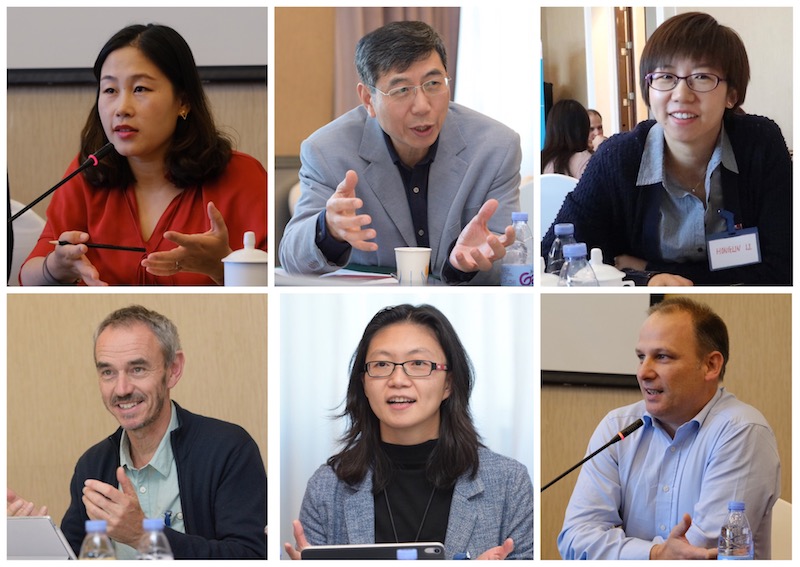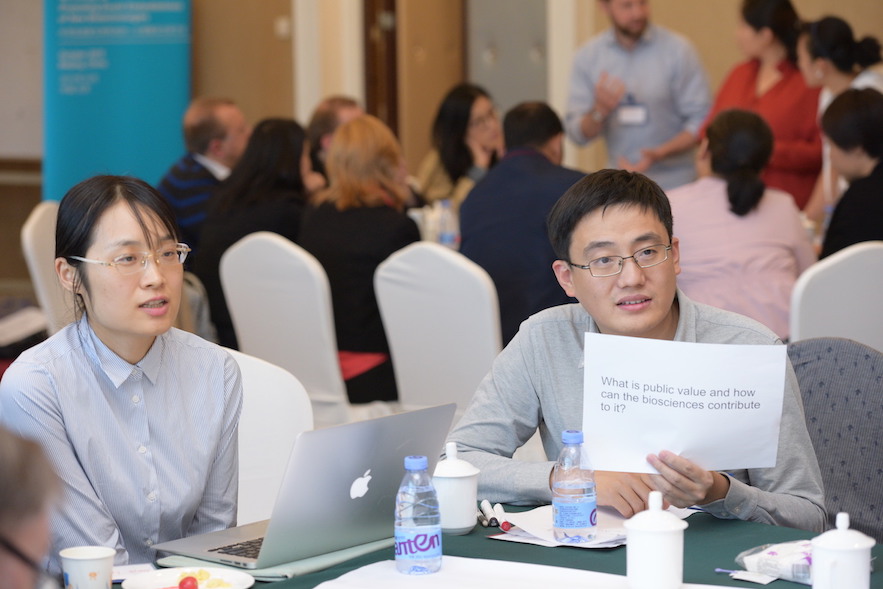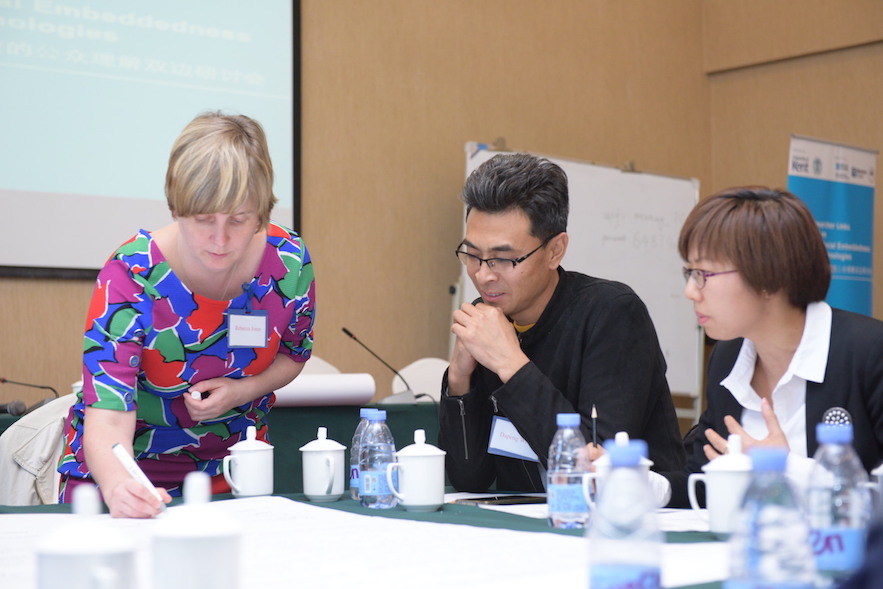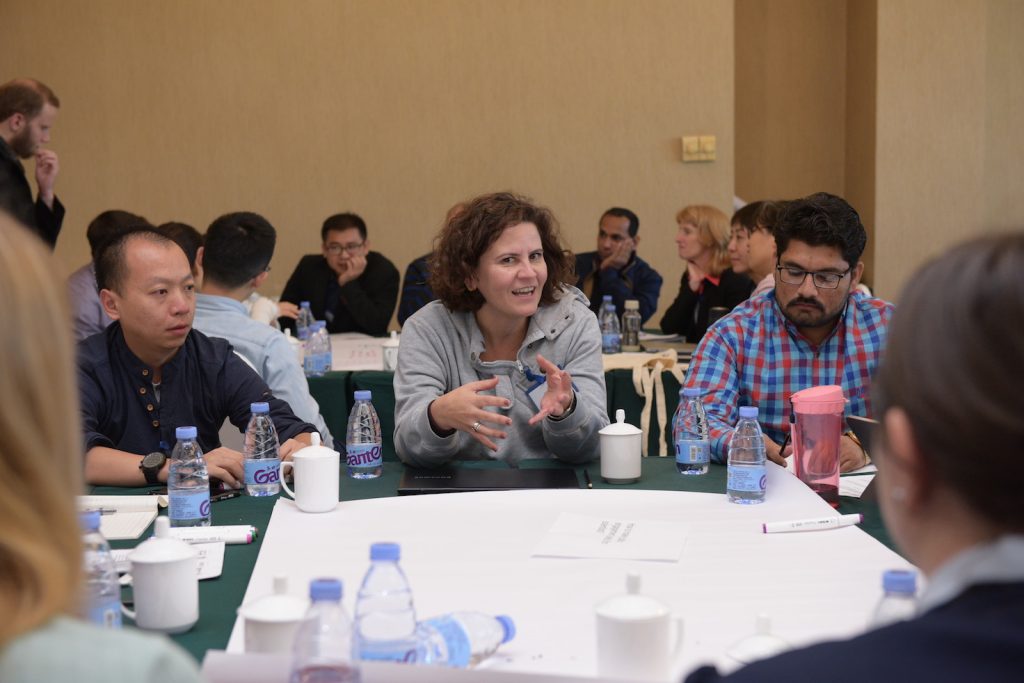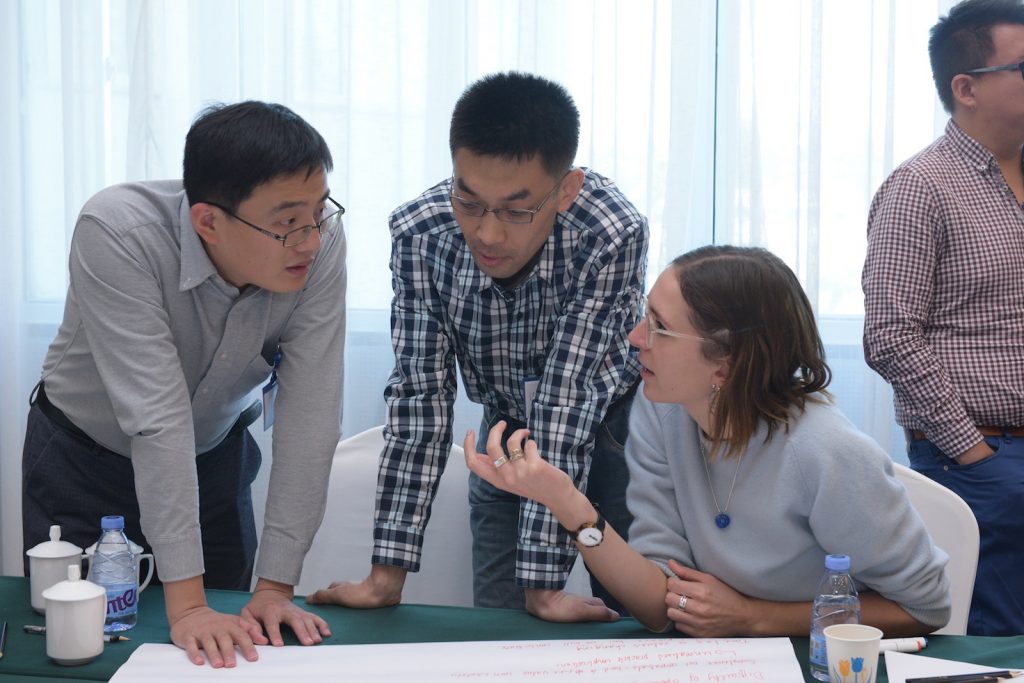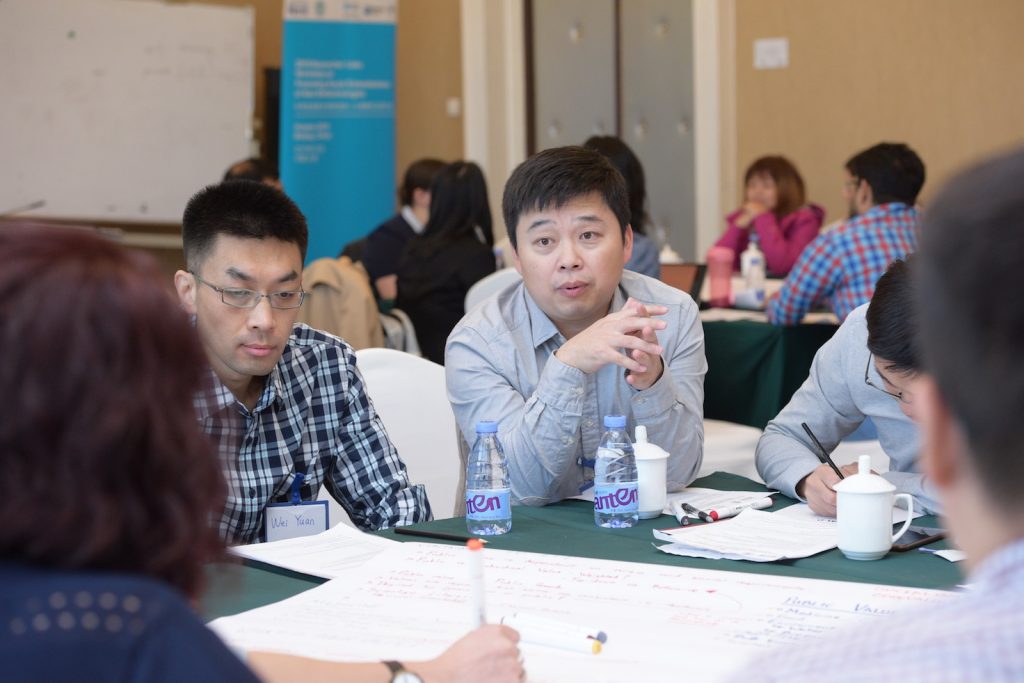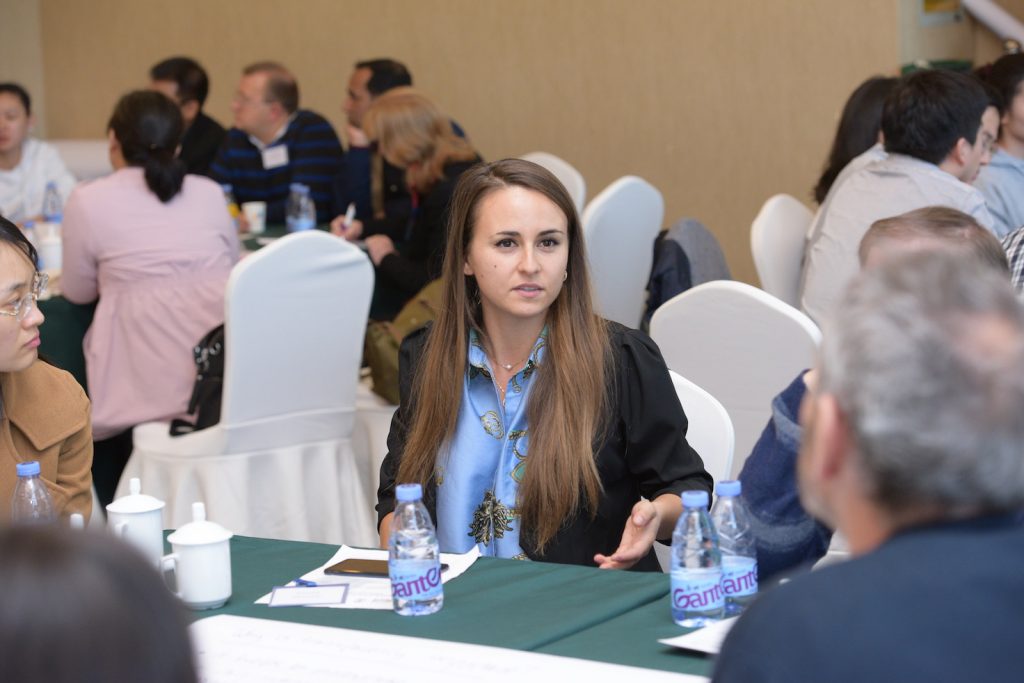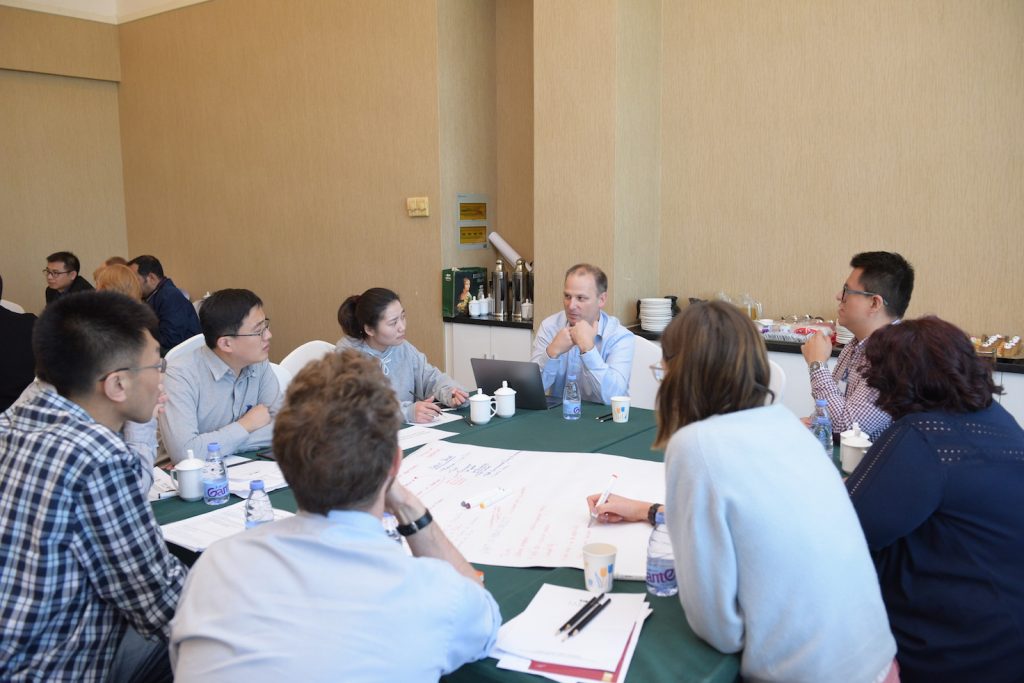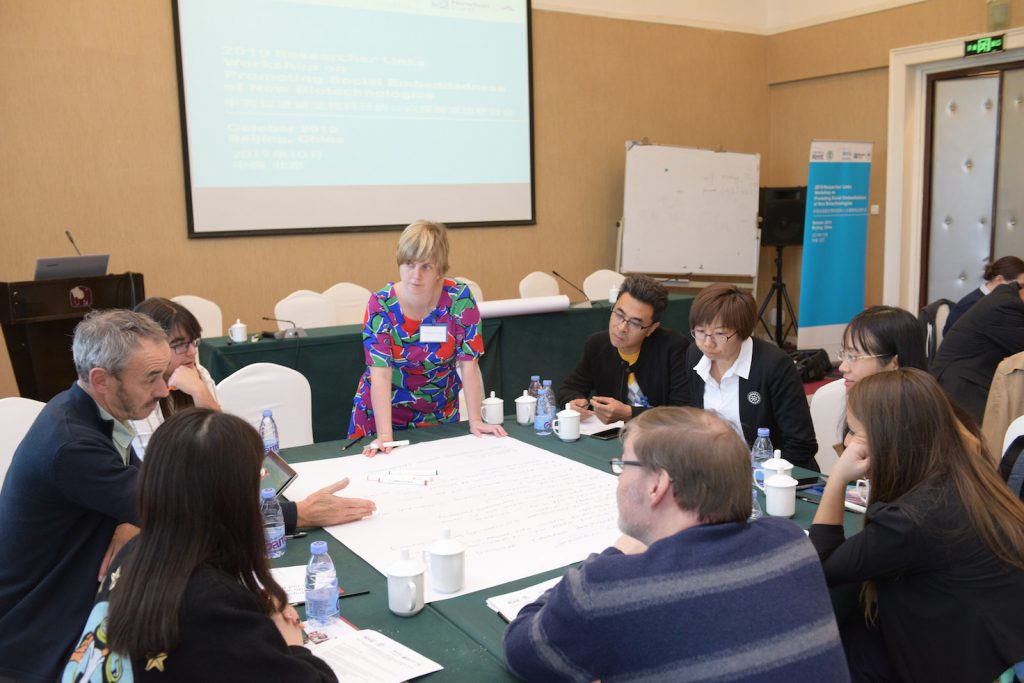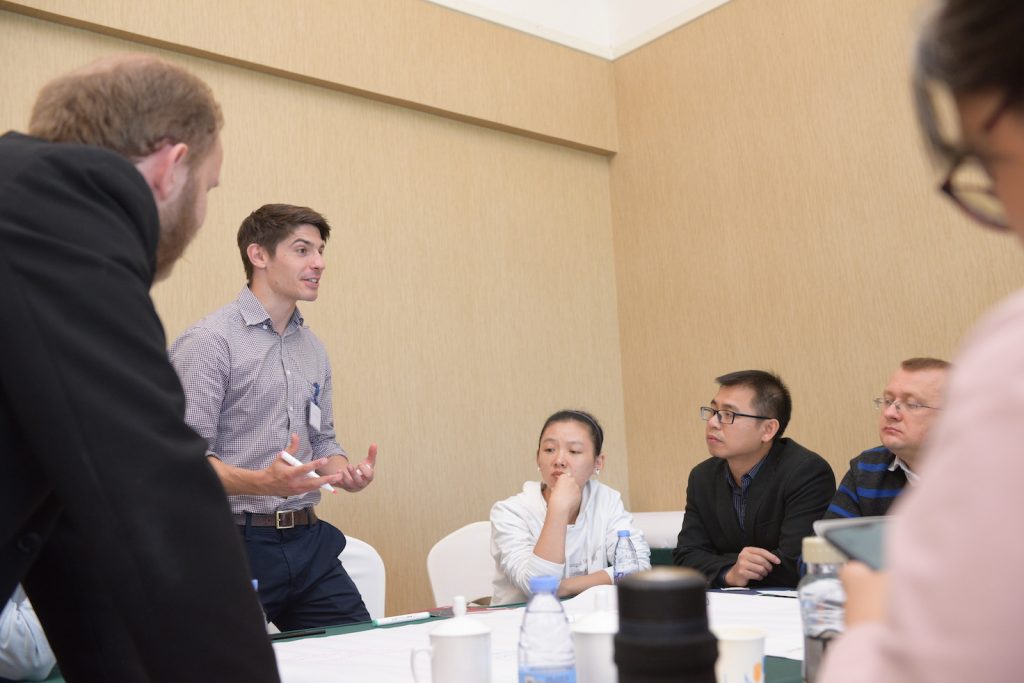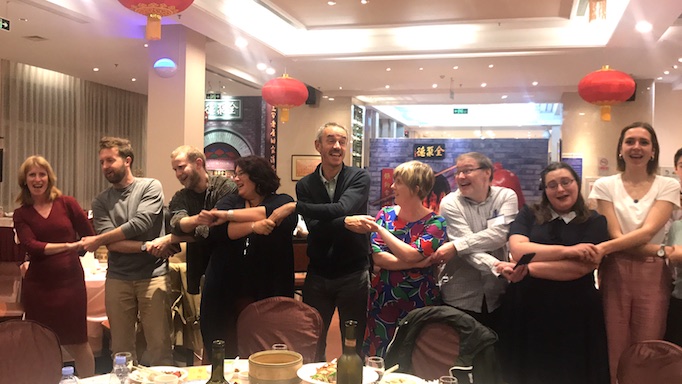Day 1- Newton Researcher Links Workshop
17 November 2019
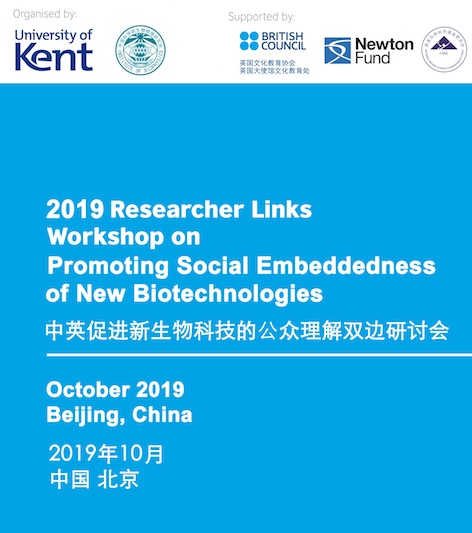
On 14 October 2019, our interdisciplinary workshop, ‘Promoting Social Embeddedness of New Biotechnologies:Co-Developing Public Engagement in and with China’ began!
Coordinated by Dr. Joy Zhang (University of Kent, PI), Prof. Xian-En Zhang (Chinese Academy of Sciences, PI), Prof. Mark Smales (University of Kent, Mentor), Director Paul Manners (UK’s National Co-ordinating Centre for Public Engagement, Mentor), Prof. Lu Gao (Chinese Academy of Sciences, Mentor) and Prof. Honglin Li (China Research Institute of Science Popularization, Mentor), this workshop consisted of 22 early careers researchers (ECRs) in the biosciences and 14 ECRs in the social sciences from 16 Chinese and 14 UK institutions.
After short openning speeches from representatives of the European Section of the National Natural Science Foundation of China and of the Institute of Biophysics , Chinese Academy of Sciences, the 3-day discussion was kicked off by a brief panel discussion from the 2 PIs and 4 Mentors on their respective views and experiences on the public engagement and the biosciences.
(Clockwise from top left: Lu Gao, Xian-En Zhang, Honglin Li, Mark Smales, Joy Zhang, Paul Manners)
This was followed by a World Cafe style of brainstorming.
We called it ‘Unpacking the Toolbox’. That is, participants are divided into self-selected groups and they collectively identified, criticised and reflected on existing socio-economic sources, institutional channels and cultural strategies that help to promote good science-society relations in China and in the UK. They rotated around the following four key questions for roughly 1 hour with 10 minutes of feedback to the whole cohort:.
- Is transparency always better? How do we know when and when not to engage?
- What is public value and how can the biosciences contribute to it?
- How to make 'scientific evidence' socially intelligible?
- How to make public engagement useful for scientists?
As you can see, everyone soon got really busy and the room was filled with heated discussions:
The questions may seem to be straightforward, but not the discussions. To various extent, we suspect all participants felt the process of 'tuning in' to their (international) collaborators' cultures and professional contexts informative. In addition to visible structural differences and constraints, participants from both countries were struck by how many subtle differences there were in how scientific priorities were conceptualised, how the aim and timing of public dialogues are framed, and how the value of international collaborations were perceived.
But it was also through this process, we started to gain better understanding of where different concerns as well as different priorities came from. Thanks to Professor Xian-En Zhang’s brilliant idea (and his beautiful accordion performance), we find ourselves celebrating insights gained from a full day’s discussions with a collective sing-along!
